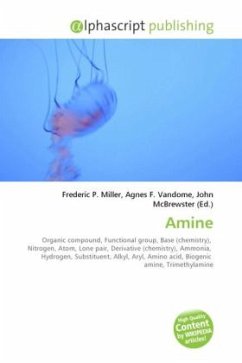In chemistry, an amide is usually an organic compound that contains the functional group consisting of an acyl group (R-C=O) linked to a nitrogen atom (N). The term refers both to a class of compounds and a functional group within those compounds. The term amide also refers to deprotonated form of ammonia (NH3) or an amine, often represented as anions R2N-. The remainder of this article is about the carbonyl-nitrogen sense of amide. For discussion of these "anionic amides," see the articles sodium amide and lithium diisopropylamide.
Bitte wählen Sie Ihr Anliegen aus.
Rechnungen
Retourenschein anfordern
Bestellstatus
Storno








